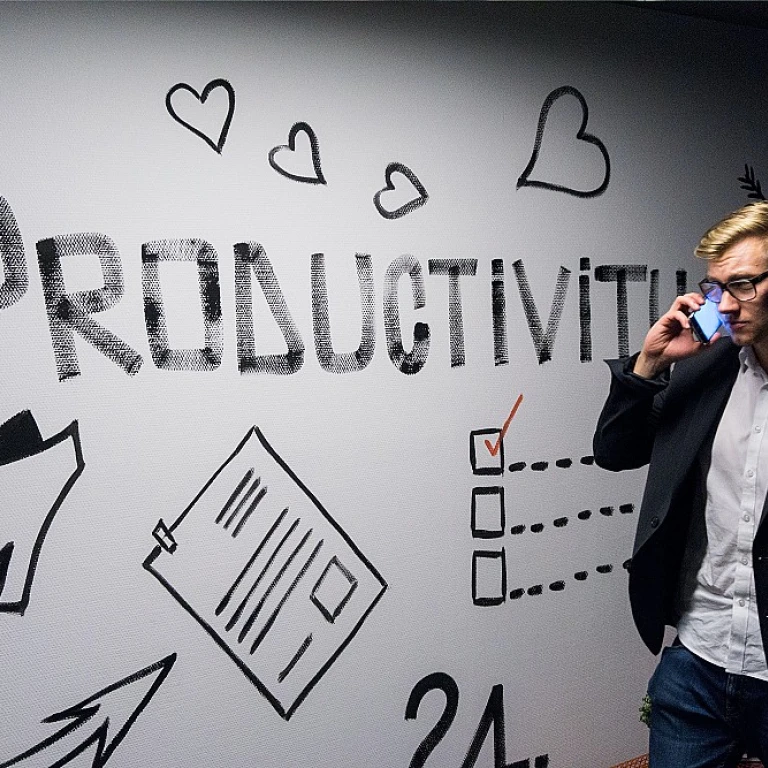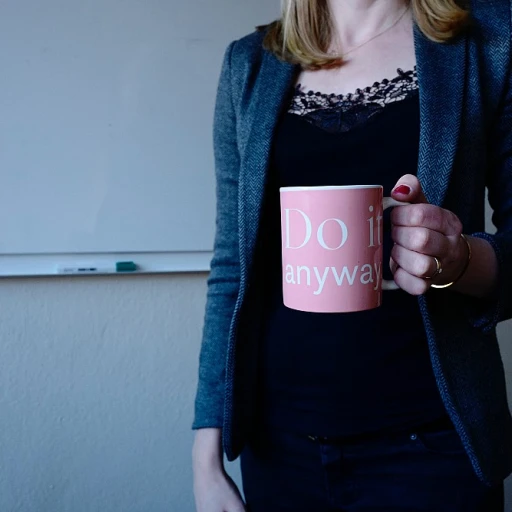
The Evolving Role of HR Professionals
The Changing Landscape of HR Responsibilities
The role of HR professionals has evolved significantly over the years. Once primarily focused on administrative tasks, today's HR resource teams are at the forefront of driving innovation within an organization. This change can be attributed to a variety of factors, including technological advancements, a shift in workplace culture, and the increasing focus on employee engagement and resource development.
HR professionals are now essential players in leading change management, team building, and professional development initiatives. Their work ensures that a company's human resources strategies align with its overall objectives, fostering a happy and productive workforce. The hard work and dedication of these professionals are often celebrated through appreciation practices, particularly on international day events dedicated to recognizing their contributions.
Technology serves as a catalyst for transformation in the HR landscape, enabling teams to streamline processes and improve efficiency across all levels of employee management. Tools that assist in professional day-to-day operations are revolutionizing how teams operate, allowing companies to remain competitive in a rapidly evolving market. Exploring the significant role HRIS analysts play in modern HR innovation is an excellent illustration of this technology-driven impact.
As organizations continue to grow, the emphasis on fostering an inclusive workplace culture and celebrating diversity becomes increasingly important. Inclusion as an innovation driver ensures diverse teams can contribute effectively to achieving business goals, making employees feel valued and appreciated daily. By nurturing a supportive environment, companies can enhance employee well-being and improve overall workplace satisfaction.
Leveraging Technology for HR Innovation
Embracing Tech-Driven Solutions in HR
In today's rapidly evolving workplace culture, HR professionals are leveraging technology to transform how human resources operate within an organization. This innovative approach not only enhances the efficiency of day-to-day operations but also contributes to professional development and teams' overall success. By integrating advanced technological solutions, companies are crafting effective career development programs in corporations, ensuring that employees have access to the resources necessary for growth and achievement. With the proliferation of digital tools, teams are now equipped to streamline processes such as hiring, onboarding, and performance management. Automation and artificial intelligence (AI) solutions are being embraced by human resources teams to manage and analyze vast amounts of data, leading to more informed decision-making. For instance, AI-driven platforms can identify trends in employee absenteeism, helping resource professionals devise strategies to improve employee engagement and well-being. Moreover, HR teams are using technology to foster stronger connections among employees, promoting a healthy workplace culture where collaboration and team building flourish. Social media and internal communication apps allow for professional day celebrations and real-time feedback, creating an environment where employees feel appreciated and valued. Technological advancements have also brought about significant changes in how international companies prioritize diversity and inclusion. Enhanced analytics tools help HR professionals assess their organizations' diversity quotas and identify areas for improvement, making the workplace more inclusive. These tools also enable professionals to celebrate international diversity appreciation days, fostering a culture of inclusivity and respect. As we navigate these changing landscapes, the emphasis on innovation in human resources continues to grow. By embracing technology, companies can ensure their human resource teams remain agile, happy, and better equipped to meet the challenges of today's competitive world.Fostering a Culture of Continuous Learning
Nurturing a Learning Environment
Fostering a culture of continuous learning is integral to driving innovation within organizations, especially in today’s rapidly evolving work landscape. Human resource professionals play a pivotal role in promoting this culture by designing and implementing learning and development initiatives that empower employees to adapt and thrive. In a climate where the ability to learn and unlearn is paramount, creating opportunities for professional development becomes a critical responsibility for HR teams.
Organizations can leverage various strategies to instill continuous learning as a fundamental aspect of their workplace culture. Firstly, encouraging employees to take ownership of their professional growth promotes both engagement and satisfaction. With platforms that offer personalized learning pathways and resources, employees can seamlessly integrate learning into their daily schedules. This not only enhances their skillsets but also contributes to a more robust organizational culture.
Furthermore, integrating technology is a powerful catalyst for innovation in learning. Digital tools and platforms facilitate learning through on-demand modules, virtual reality training, and interactive sessions that cater to different learning styles. This approach not only makes learning more accessible but also aligns with the digital competencies expected in a modern workplace. When HR professionals harness technology effectively, they can transform learning from a one-time event to an ongoing conversation within the company.
Team-building activities and appreciation events are also instrumental in promoting a learning culture. Celebrating milestones and achievements in professional development through 'professional days' or 'appreciation days' highlights the organization's commitment to valuing growth and innovation. This, in turn, cultivates a happy and motivated workplace, where employees feel recognized and invested in.
Social media platforms can also be utilized to share and celebrate learning successes. Encouraging teams to showcase their learning journeys through social media not only builds a community of learners but also attracts potential candidates who value a culture of development. By sharing these positive experiences, companies demonstrate their dedication to nurturing human potential, thereby reinforcing their brand as an employer of choice.
In conclusion, the role of HR in fostering continuous learning is indispensable. By nurturing a culture that embraces constant growth, organizations position themselves as agile entities ready to meet the challenges of tomorrow. This proactive approach not only enhances employee engagement but also ensures that companies remain competitive in the ever-changing business environment.
Enhancing Employee Experience through Innovation
Improving Employee Engagement with Innovative Strategies
In today's fast-paced work environment, enhancing employee experience has become a critical focus for human resources teams. Resource professionals recognize that happy employees not only drive productivity but also foster a positive workplace culture. To celebrate the essence of International Human Resource Professionals Day, organizations are increasingly leveraging innovation to boost employee engagement and maintain a culture that encourages development and appreciation.
It's essential for companies to create a day-to-day environment where appreciation is second nature. This ensures employees feel valued for their hard work and are motivated to contribute more to their teams and the organization. Acknowledging the efforts of employees through professional development opportunities and team-building exercises plays a significant role in nurturing a content workplace environment.
Moreover, integrating technology into everyday resources can significantly enhance employee experience. For example, using social media platforms for recognition can amplify the celebration of employee achievements and encourage a culture of mutual appreciation. This innovative approach helps in establishing a sense of unity and belonging among employees, making the workplace a more engaging and happy place to be.
Data-driven insights also empower human resource teams to understand better the needs and preferences of their employees, allowing for tailored solutions and personalized development plans. By leveraging such insights, companies can design initiatives that not only address current employee expectations but also anticipate future demands, ensuring sustained engagement and satisfaction.
As the role of HR professionals continues to evolve, embracing innovation in enhancing the employee experience becomes imperative. By fostering a workplace culture that prioritizes resourcefulness and continuous improvement, organizations can ensure that their employees remain happy, engaged, and ready to tackle the challenges of tomorrow.













